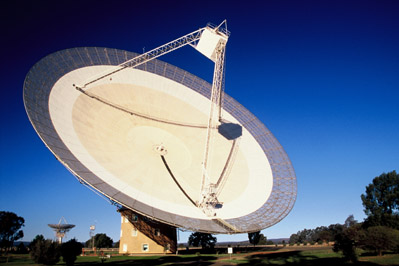News
The PPTA
 The Parkes Murriyang Radio Telescope situated in New South Wales, Australia. Credit: John Smith, CSIRO |
Pulsars and timing arrays
A Pulsar Timing Array project uses radio telescopes observe a large number of millisecond pulsars. We measure the times of arrival of pulses from the pulsars with incredible precision. We then compare our model predictions for those arrival times with the measurements. Discrepancies can occur because of irregularities in the rotation of the pulsars, from variations in the interstellar medium, because of errors in our observatory clocks, or because of the presence of a gravitational wave background. With data sets collected over several years it is possible to distentangle these various phenomena.
Background image credit: Carl Knox, OzGrav
Results
We also note some exciting results from our IPTA partners. We are currently coordinating the publication of our most up-to-date data sets and our searches for the gravitational wave background. The results are expected to be made public in mid-2023. The IPTA has produced a checklist describing a formal process that will be followed to ensure PTA claims of detection are credible. The checklist is available from here.
About us
The PPTA team consists of astronomers around the World and contains experts in pulsars, gravitational waves, theoretical astrophysics, radio telescopes, software development and data analysis. The team currently consists of members from CSIRO, Swinburne University of Technology, Monash University, Macquarie University, University of Warsaw, Curtin University, Beijing Normal University, Hunan Normal University, Western Sydney University, US Naval Research Laboratory, Guangzhou University, Manly Astrophysics and the Auckland University of Technology.
The chair of the PPTA Steering Committee is George Hobbs (CSIRO), who can be contacted for further details. We are also linked to the ARC Centre of Excellence for Gravitational Wave Discovery (OzGrav) and members of the Gravitational Wave International Committee (GWIC) and the International Pulsar Timing Array (IPTA).
